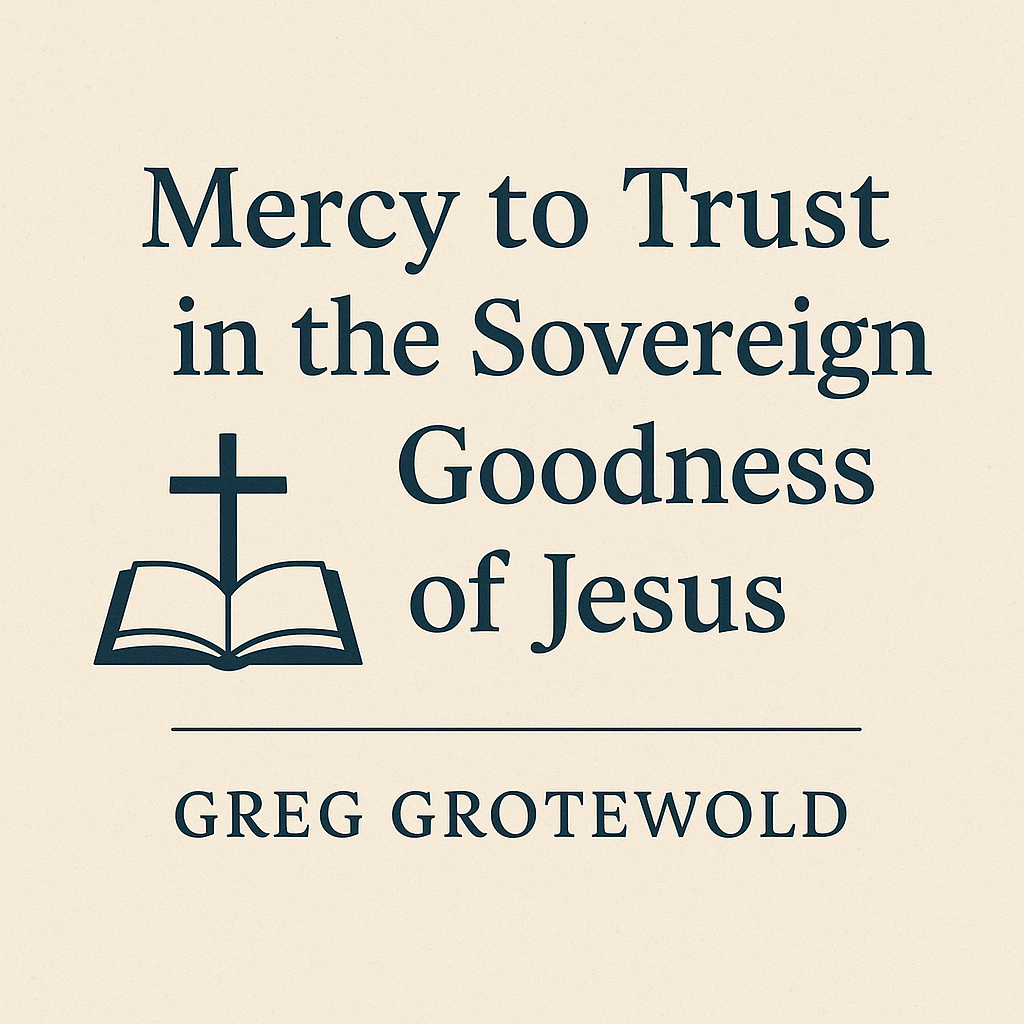⏱️ Estimated Reading Time: 4 min read
Mercy to Trust in the Sovereign Goodness of Jesus
By Greg Grotewold
Life disappoints. At certain junctures, it deeply disappoints. Even for those trusting God, intentionality proves inconsequential. Diligence begets suspicion. Effort goes unnoticed. Intensity lays waste to honor. Toil unleashes vanity.
“What has a man from all the toil and striving of heart with which he toils beneath the sun? For all his days are full of sorrow, and his work is a vexation. Even in the night his heart does not rest. This also is vanity.”
—Ecclesiastes 2:22–23 (ESV)
I’m enduring a prolonged season of drought, and the Preacher’s toil in Ecclesiastes is mine. His exasperation is my exasperation. I, too, question why I do what I do, for the result of my work has proved incommensurate with the energy expended. The supposed maxim that diligence produces good fruit is not universally true—or so it appears. As such, my labor has become a vexation and a source of sorrow. What ought to be simply isn’t.
For those more charitable—or perhaps less discerning—in their assessment of life, such disparities might be treated with tolerance. Not me. I find them anything but tolerable and refuse to indulge. To do so would cut at the very fiber of who I am. To accept would be tantamount to surrender. And that I can’t do. I need to understand why maxims are not always maxims. I need to understand why effort and outcome don’t more gladly align.
Carrying such a grievance is not without consequence, as one might expect. It provides the most attractive of platforms from which all sorts of influences are allowed to speak. Experience shows that my inner deist proves to be the most vociferous and vehement among them. He is loud and impassioned. And unsurprisingly, he has my ear. “Adorned” with the well-worn doubts of my past, what I feel has begun to assault once again what I know. I find myself asking the same old questions—and ashamedly so—questions that no mature Christian ought to be asking. But I ask anyhow.
Are you there, Jesus?
Do you see my toil?
Do you see how self-sacrificial I’ve been?
Why haven’t you blessed my work?
Why are maxims only maxims for everyone else?
Why the futility?
Still, even while questioning, I find myself clinging to the hope of trusting God. The tired path of deism has a shelf life. His voice can’t stand on its own in perpetuity. At some point, if he hopes to maintain any kind of legitimacy, this zealot must confront the inconvenient claims of Scripture and issue a verdict on them. Chief among them in this context is Romans 8:28:
“And we know that for those who love God all things work together for good, for those who are called according to his purpose.”
—Romans 8:28 (ESV)
Paul tells us that for those who love Jesus, no circumstance is wasted by Him. “All things” by anyone’s definition means all things. The good, the bad, and the ugly all serve some ultimate good. My toil is among them, the apostle claims. Thus, the question isn’t whether there will be good, but when it will manifest. The question isn’t whether there will be good, but how it will manifest. The question isn’t whether there will be good, but to what degree it will manifest.
I don’t understand how all of this works. Nor am I able—or required—to, according to the Bible. At least, I think that’s the point—perhaps in part—of Romans 11:33:
“Oh, the depth of the riches and wisdom and knowledge of God! How unsearchable are his judgments and how inscrutable his ways!”
—Romans 11:33 (ESV)
His ways cannot be fully grasped. They are beyond our ability to conceive and thus contextualize.
What should I understand then? To my inner deist’s consternation, the verdict is in:
“Trust in the Lord with all your heart and lean not on your own understanding.”
—Proverbs 3:5–6 (ESV)
I’m to stop playing God and let Jesus be Jesus. I’m called to trust even when I don’t understand. I’m called to trust that the good promised—whenever and however it may manifest—will, in fact, be good. I’m called to trust that His maxims are universal. I’m called to trust that effort and outcome do align. I’m called to trust that my labor is not in vain. I’m called to continue trusting God, not just for the fruit, but for the faithfulness He cultivates in the process.
I’m called, in other words, to trust that the Lord Jesus Christ is both sovereign and good. May He grant me the mercy needed to do so.




